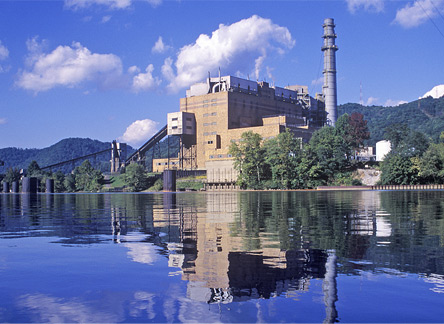
CHARLESTON, W.Va. — The United States Supreme Court says the federal EPA must take the “cost of compliance” for utilities into account when making rules in connection with the Clean Air Act.
The 5-4 opinion, which came down Monday, was initially being viewed as a victory for the coal industry.
MORE Read Supreme Court decision here
“The regulators have to consider the cost. They simply can’t impose rules just because they think they have the authority to do so,” National Mining Association spokesman Luke Popovich told MetroNews.
The EPA first issued the mercury and air toxics (MATS) rule in 2011. It took effect this past April. It regulates mercury, arsenic and acid gases emitted by coal-fired power plants. The rule has forced the closures of several plants in West Virginia. Popovich said those that oversee 140 other coal-fired plants across the nation sought a one-year extension and could remain open because of the Supreme Court decision.
“Some portion of that capacity will come back on now that they don’t have to comply with this foolish rule,” he said.
But others said Monday the federal EPA would simply have to rewrite the rule, reconsidering the cost-benefit analysis, and then move forward with the regulation.
The Hill reported Monday EPA administrator Gina McCarthy didn’t appear too concerned about a ruling from the Supreme Court when she made some comments last week.
“This is a rule that actually regulates toxic pollution emissions from primarily coal facilities, and we think we’re going to win because we did a great job on it,” McCarthy said on HBO’s Real Time with Bill Maher. “But even if we don’t, it was three years ago, most of them are already in compliance, investments have been made, and we’ll catch up. And we’re still going to get at the toxic pollution from these facilities.”
Coal supporters aren’t expecting a miracle according to Popovich.
“EPA’s attitude is set,” he said. “They will, you can bet, try anyway they can to destroy more of the existing coal industry. I don’t doubt her (McCarthy’s) word when she says they will go back to the drawing board.”
U.S. Senator Shelley Moore Capito and others have asked McCarthy on more than one occasion to consider the costs to the utilities and ultimately their customers. West Virginia Coal Association President Bill Raney said up until now the agency has strong-armed the questions. He said he hopes that changes.
“The (Supreme Court ruling) adds a dimension that everybody has asked for–for years on these air quality rules,” Raney said. “So we’re going to at least have a discussion about all of that and just not accept what EPA puts out what the impact is.”
Raney also believes the ruling could reopen discussion about the recent closings of three coal-fired power plants in West Virginia by American Electric Power. The West Virginia Public Service Commission recently requested more information from the utility on its reasons for closing the plants.
Gov. Earl Ray Tomblin and state Attorney General Patrick Morrisey both issued statements Monday.
Tomblin said the Supreme Court decision is a step in the right direction.
“As we have maintained for years, the Environmental Protection Agency far too often fails to consider the impact its mandates have on jobs and the economies of both our state and our nation. I’m pleased with today’s U.S. Supreme Court ruling and hope that it encourages those making these unreasonable decisions to reconsider their plans not only for mercury emissions but the unreasonable restrictions this administration wants to put on existing power plants.”
Morrisey said the Supreme Court decision is a warning the EPA must heed.
“Just last month, the EPA put forward an unprecedented rule that imposes federal control on local waters and farmlands, in clear violation of the Clean Water Act. And in the coming months the EPA is slated to finalize its so-called Clean Power Plan, which will seek to impose unprecedented and illegal requirements on States and coal-fired power plants. These Rules will have devastating effects on coal miners, farmers, businesses and homeowners of West Virginia”
